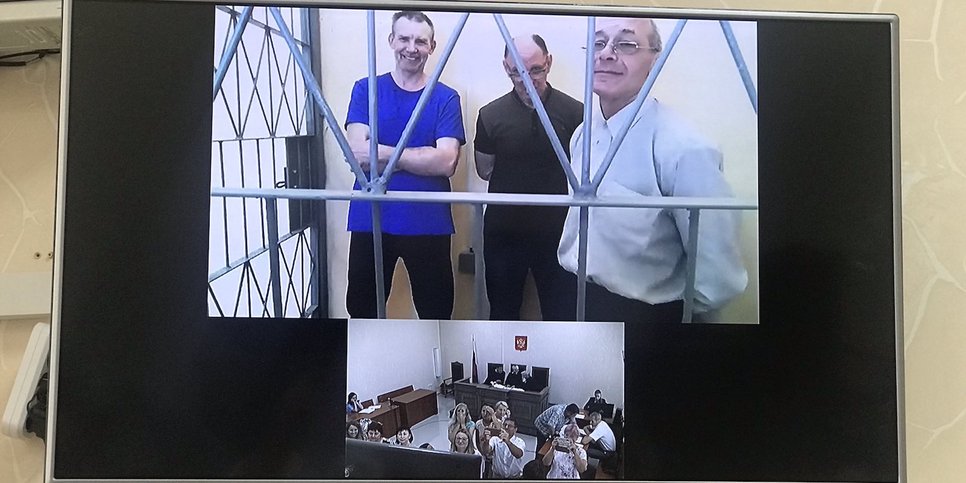From left to right: Vladimir Sakada, Yevgeniy Zhukov and Vladimir Maladyka attend the appeal hearing via video conferencing
From left to right: Vladimir Sakada, Yevgeniy Zhukov and Vladimir Maladyka attend the appeal hearing via video conferencing
Court of Appeal in Sevastopol Upheld the Verdict Against Three Local Jehovah's Witnesses. For Their Faith in God, They Will Serve Long Terms in a Penal Colony
CrimeaOn October 11, 2023, the judicial panel of the Sevastopol City Court upheld the verdict against Vladimir Maladyka, 60, Yevgeniy Zhukov, 53, and Vladimir Sakada, 52, – 6 years in a penal colony. The verdict has entered into force, but can be appealed in the cassation procedure.
In his appeal, the lawyer pointed out that Maladyka, Sakada and Zhukov "were convicted only because their beliefs are based on the Bible and they peacefully practiced their Christian faith." At court hearings, they did not deny that they were Jehovah's Witnesses and that together with family and friends, they sang songs praising God, approached him in prayer and discussed the Bible. At the same time, the believers explained that their goal was to practice their religion, help people and show kindness and love for others.
According to the defense, the conviction of Maladyka, Zhukov and Sakada "clearly demonstrated that, if they do not renounce their religious views, they will continue to be prosecuted." At the same time, the April 20, 2017 decision of the RF Supreme Court did not oblige citizens to change their faith and their usual forms of its practice.
In Crimea 27 believers have already been prosecuted for their faith. Because of their convictions, 12 people have been sentenced to 6 or more years in a penal colony and two others have received suspended sentences. The international community and human rights officials consider the prosecution of Jehovah's Witnesses unjust and call on the Russian Federation to stop criminal cases and release prisoners of conscience.



